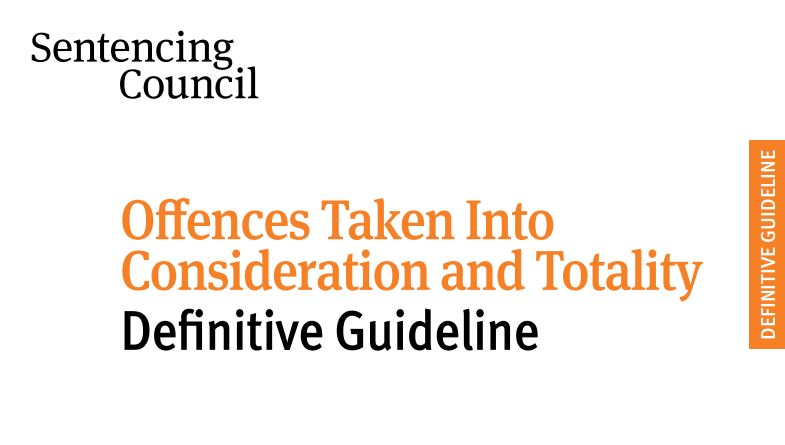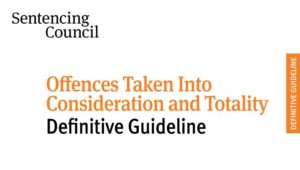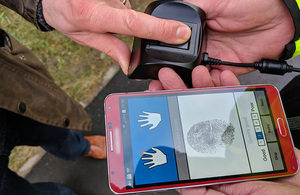 On 4 May 2018, Deputy Police and Crime Commissioner Kevin Gillott and Rosemary Spilsbury, Business and Performance Manager with the Derbyshire Criminal Justice Board, met with a group of Chesterfield crime solicitors who represent clients appearing before North Derbyshire Magistrates’ Court.
On 4 May 2018, Deputy Police and Crime Commissioner Kevin Gillott and Rosemary Spilsbury, Business and Performance Manager with the Derbyshire Criminal Justice Board, met with a group of Chesterfield crime solicitors who represent clients appearing before North Derbyshire Magistrates’ Court.
The meeting was informal in nature, arranged through Derby crime solicitor Nick Wright as the Derby and District Law Society  representative for criminal matters. The outcome has been shared with Legal Aid account managers and the Chair of the Derbyshire bench.
representative for criminal matters. The outcome has been shared with Legal Aid account managers and the Chair of the Derbyshire bench.
The aim of the meeting was to discuss any issues Chesterfield crime solicitors had with the processing of suspects and defendants by Derbyshire constabulary. Some of the issues were also relevant to HMCTS and the CPS so the details were to be forwarded on.
Present were our Chesterfield crime solicitors David Gittins, Ben Strelley and Denney Lau, as well as other local practitioners.
The following matters were discussed:
Police Investigations
Police no longer appeared to be investigating both sides of a complaint during the investigation stage. It was seldom, if ever, that they would speak with named defence witnesses.
Those interviewing suspects appeared to have a pre-conceived idea of what would be put in interview. The series of questions were not departed from or amended dependent upon answers given by the suspect. As a result, issues were not properly developed or interviews went on far longer than was necessary.
The need to investigate the issues raised by a suspect where relevant has been raised with the local body responsible for police training.
Bail and suspects released under investigation
The fact that bail could continue to be used did not appear to be properly considered by officers.
 Instead, the overwhelming majority of suspects were simply being released under investigation (RUI). Thereafter, there was no obvious suggestion that an investigation was being actively pursued.
Instead, the overwhelming majority of suspects were simply being released under investigation (RUI). Thereafter, there was no obvious suggestion that an investigation was being actively pursued.
Under the old bail system, Chesterfield crime solicitors at least had the opportunity to exercise some oversight in a case. Representations could be made when suspects returned to the police station on bail, and bail milestones were set by which time there was a reasonable expectation that things might have progressed.
The police are to be encouraged to respond to emails from the defence explaining what is happening so that clients can be kept informed of progress. The defence may be able to assist if, for example, it is discovered that a client has been subject to a postal requisition but has moved address. The defence may be able to help save scarce police resources by making contact with a suspect if a further interview is required or with a defendant to make sure court dates are kept.
Superintendent Lewis will be contacting all police staff to ensure they are aware of the importance of updating suspects and their legal representatives.
Voluntary interviews
The number of voluntary interviews is increasing. Unfortunately police stations lack the facilities to cope. Voluntary interviews are not meant to take place in the cell blocks and several interview rooms are out of use.
The voluntary interview process and facilities are being reviewed. In the short term voluntary interviews will continue to take place in the cell block but longer term alternative rooms will be identified in police buildings across the force area.
Chesterfield Custody Suite
The facilities at Chesterfield custody suite are particularly poor. Although the rooms in the cell block are also poor, they are still better than many of the rooms provided for voluntary interviews at many sites. Although there has been some repairs and decorations at Chesterfield custody, other options may need to be considered in the long term.
Disclosure of evidence in particular cases
On practitioner cited a specific case where the alleged offender himself is vulnerable with a history of suicide attempts. Phone records, and particularly text messages, were relevant to the case. The case summary referred to 7,000 text messages that the police had retrieved.
The defence had requested this relevant material at the beginning of the case. Three months later the defence was provided with a disc that could not be read without particular software and a password. The defence had neither the software or the password.
Chesterfield crime solicitors are to be provided with the different types of format in which such information will be provided in future and where the software and other information can be obtained.
Disclosure of CCTV footage to Chesterfield crime solicitors
CCTV is not being provided to Chesterfield crime solicitors for the first hearing at the Magistrates’ Court. It does not matter whether the case is anticipated to be a guilty or not guilty case.
There is an additional difficulty again in relation to the different formats in which it is supplied. Some formats do not work on defence systems and again there are problems with the footage being password protected.
Again, we are to be provided with details of different formats used for different purposes and the software needed to access the CCTV footage.
Anticipated Plea
Unfortunately the police often anticipate the plea incorrectly. This is a particular problem where a defendant has exercised their right to silence and there has been a ‘no comment’ interview.
If a case is wrongly identified as a ‘guilty’ plea then there will be no statements, exhibits or CCTV. This generates a delay at court while this evidence is provided. It will also mean that it is unlikely that issues raised by a suspect in interview will have been investigated.
A Criminal Justice review underway to establish how certain assumptions are made on plea, and how to improve the assessment of plea.
Respect for suspects and defendants
A plea was made that officers not refer to alleged offenders as ‘perps’ in the early summary of the case. Rosemary has kindly fed this issue back to those responsible for training local officers and it is to be included in a Message Of The Day to officers.
Buxton police station
There has been discussion as to whether the custody suite is to close and prisoners be processed elsewhere. Unfortunately there is no answer, so a request was made that there is proper consultation with local defence solicitors, including Chesterfield crime solicitors, if change is to be considered.
Temporary closure of custody suites
When police close a custody suite temporarily the police have been asked that the duty solicitor covering that station be notified. As a result of the meeting, the Chief Inspector has a request to Custody staff for this to be done.
Best evidence
It was noted that the police are filming information from the phones of witnesses or complainants rather than seizing the device upon which the messages , photographs or footage is recorded on.
This provides a problem with disclosure. Neither the prosecution or defence are able to access the full thread of messages or the original footage so allow the full context to be shown.
Disclosure issues have been recognised nationally by both the police and the Crown Prosecution Service and there is to be increased training for both agencies. The College of Policing is producing a national training package for officers.
Reporting poor practice
The Chesterfield crime solicitors present at the meeting observed that it would be useful for defence solicitors to be able to give feedback in relation to specific issues.
If there are examples of poor work that do not need an immediate response then Rosemary passed out her email address and encouraged direct contact in order that the issues can be resolved.
Conclusion
Those present were of the view that the meeting was useful. It was also an indicator that there could be a constructive working relationship between the police and defence practitioners in order that all parties, including suspects or defendants, will benefit from change over the long term.
It is hoped that further such meetings will be arranged for the future.
 Finally, most people are aware that the location where a mobile telephone call was made can be pinpointed to within a few hundred metres.
Finally, most people are aware that the location where a mobile telephone call was made can be pinpointed to within a few hundred metres. The data from the Health App was examined. It could be seen that at certain moments the data demonstrated a significant increase in physical activity. This mobile phone data correlated with important parts of the prosecution case within the timeline, namely dragging a body down a river embankment and then climbing back up.
The data from the Health App was examined. It could be seen that at certain moments the data demonstrated a significant increase in physical activity. This mobile phone data correlated with important parts of the prosecution case within the timeline, namely dragging a body down a river embankment and then climbing back up.



















